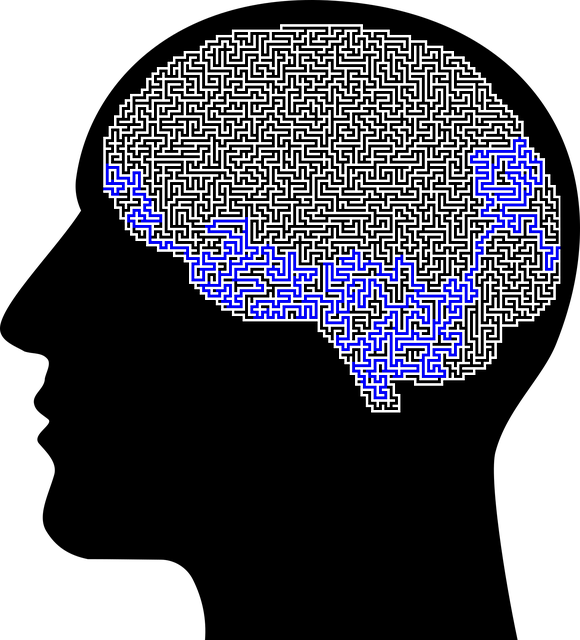Aurora Workplace Issues and Job Stress Therapy tackles the challenges of diagnosing mental illness in the workplace by offering comprehensive solutions. With limited specialized training, misdiagnosis and stigmatization impede employee support. The program focuses on evidence-based practices, risk assessment, and holistic approaches to enhance diagnostic accuracy. Through tailored programs, open dialogue, and regular workshops, it fosters stigma-free environments, improves mental health, and boosts job satisfaction. Future initiatives include AI-driven tools, training sessions, and digital self-care platforms to maintain leadership in proactive employee well-being.
In Aurora, improving mental illness diagnosis accuracy is a growing priority, especially within the workplace. This article delves into the current landscape of mental health diagnoses in the city, exploring challenges unique to Aurora’s workforce. We discuss common hurdles hindering accurate assessments, highlighting innovative therapy approaches designed to enhance diagnostic reliability. Additionally, we examine collaborative employee support systems and future strategies aimed at refining job stress therapy for Aurora residents.
- Understanding Mental Health Diagnoses: The Current Landscape in Aurora
- Challenges in Workplace Diagnosis: Unraveling Common Hurdles
- Innovative Therapy Approaches for Improved Accuracy
- Employee Support Systems: A Collaborative Effort
- Future Directions: Continuous Improvement Strategies for Aurora's Job Stress Therapy
Understanding Mental Health Diagnoses: The Current Landscape in Aurora

In Aurora, understanding mental health diagnoses is a complex issue with significant implications for both individuals and the workplace. The current landscape reveals challenges in accurate diagnosis, often attributed to the multifaceted nature of mental illness. Symptoms can overlap between various disorders, making differentiation difficult, especially for less experienced professionals. This ambiguity can lead to misdiagnosis or delayed treatment, exacerbating existing Aurora workplace issues and job stress.
The need for improvement is evident, particularly when considering the impact on individuals’ emotional regulation, self-esteem improvement, and resilience building. Enhancing diagnostic accuracy requires a multifaceted approach. Increased training for healthcare providers on recognizing nuanced symptoms can improve early identification. Additionally, integrating diverse therapeutic modalities, such as cognitive-behavioral therapy, mindfulness practices, and interpersonal approaches, can provide more comprehensive solutions. Such efforts are crucial steps toward ensuring effective treatment and supportive environments in Aurora and beyond.
Challenges in Workplace Diagnosis: Unraveling Common Hurdles

Diagnosing mental illness in the workplace presents unique challenges. One significant hurdle is the lack of specialized training for many employers and managers, leading to misidentification or dismissal of employee struggles. Additionally, the stigmatization surrounding mental health issues can create an uncomfortable environment, preventing open conversations and hindering employees from seeking help. Aurora Workplace Issues and Job Stress Therapy aim to address these hurdles by offering tailored programs that enhance emotional well-being promotion techniques, boost confidence, and encourage positive thinking among staff members.
Another common challenge is the diverse presentation of mental illness, which can make diagnosis tricky. Employees might exhibit different symptoms or present them in subtle ways, making it difficult for non-professionals to recognize underlying issues. This complexity necessitates comprehensive strategies that go beyond surface-level solutions. By implementing evidence-based practices and fostering a culture of understanding, organizations can create safer spaces where employees feel comfortable discussing their struggles and receiving appropriate support.
Innovative Therapy Approaches for Improved Accuracy

In recent years, the mental health community has witnessed a shift towards innovative therapy approaches aimed at enhancing diagnosis accuracy. One such notable example is Aurora Workplace Issues and Job Stress Therapy, which focuses on identifying and addressing stressors in professional environments. This approach leverages the interconnectedness of work-related issues and mental wellness, offering a more holistic perspective that improves diagnostic precision. By integrating evidence-based techniques from various disciplines, therapists can tailor interventions to meet individual needs, ensuring more effective treatment plans.
The Mental Wellness Podcast Series Production has also played a pivotal role in this evolution, providing accessible platforms for sharing knowledge and raising awareness about mental illness. Through engaging discussions and expert insights, these podcasts contribute to the ongoing dialogue on mental health, fostering better understanding among both professionals and the general public. Coupled with Risk Assessment for Mental Health Professionals, which emphasizes the importance of comprehensive risk evaluation, these efforts collectively drive down diagnostic errors and enhance patient outcomes, ultimately reducing the stigma associated with mental illness (Mental Illness Stigma Reduction Efforts).
Employee Support Systems: A Collaborative Effort

In the effort to improve mental illness diagnosis accuracy, employee support systems play a pivotal role. Organizations like Aurora Workplace Issues and Job Stress Therapy are at the forefront of these collaborative efforts, focusing on comprehensive programs that encompass Emotional Well-being Promotion Techniques and Communication Strategies. By fostering open dialogue and implementing evidence-based practices, these initiatives aim to create environments where employees feel comfortable discussing their struggles without stigma.
Through regular workshops, training sessions, and one-on-one counseling, Aurora promotes Burnout Prevention by teaching stress management techniques and resilience-building skills. This proactive approach not only enhances individual mental health but also boosts overall productivity and job satisfaction. By addressing workplace issues at their root, these collaborative efforts ensure a healthier, more supportive work environment for all.
Future Directions: Continuous Improvement Strategies for Aurora's Job Stress Therapy

Aurora’s Job Stress Therapy program has laid a strong foundation for addressing workplace issues and promoting employee mental health. However, to ensure continuous improvement, future strategies should focus on several key areas. Firstly, integrating advanced assessment tools that leverage artificial intelligence can enhance diagnosis accuracy, allowing for more personalized treatment plans. Secondly, regular training sessions targeting both therapists and employees could significantly improve resilience building and depression prevention. Encouraging self-care routine development for better mental health through innovative digital platforms will also be pivotal in fostering a supportive work environment.
By adopting these strategies, Aurora can create a dynamic and adaptive system that addresses emerging workplace challenges, ensuring its Job Stress Therapy program remains at the forefront of promoting employee well-being. Regular data analytics on treatment outcomes and feedback from participants will provide valuable insights to refine and optimize the program’s effectiveness over time.
Efforts to enhance mental illness diagnosis accuracy in Aurora, particularly within the context of workplace issues and job stress therapy, are crucial. By addressing challenges through innovative therapeutic approaches and robust employee support systems, Aurora can significantly improve its mental health landscape. Continued focus on these strategies is essential to ensure that individuals receive accurate diagnoses and effective treatment, ultimately fostering a healthier and more supportive work environment for all.














